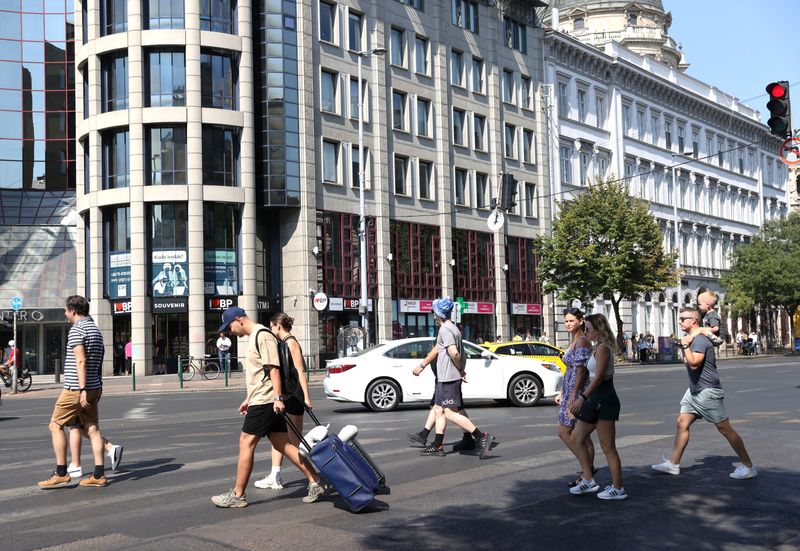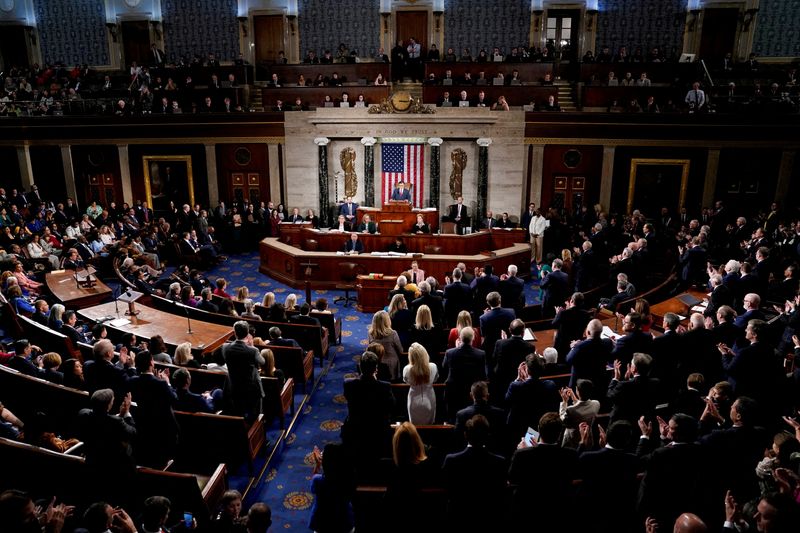By Krisztina Fenyo and Gergely Szakacs
BUDAPEST (Reuters) – A Budapest district is holding a two-week referendum on a possible ban on short-term rentals, which would be the first of its kind in one of Europe’s most popular tourist destinations.
Eurostat figures show almost 719 million guest nights spent in the European Union were booked via online platforms Airbnb, Booking (NASDAQ:BKNG), Expedia (NASDAQ:EXPE) Group and Tripadvisor last year, with Paris leading EU capitals with over 19 million guest nights.
Within central Europe, Budapest was the most popular for short-term stays with 6.7 million guest nights, ahead of Vienna, Prague, Warsaw, Krakow and others.
Tamas Soproni, mayor of the Budapest district staging the vote that began on Monday and ends on Sept. 15, says the city’s popularity has justified asking locals about the impact of short-term stays on housing affordability and quality of life.
“You cannot sit idle and just wait for something to happen,” said Soproni, the mayor of Budapest’s scenic sixth district.
“I think we should be grateful for living in an age when many people can afford holidays abroad. However, what we do not take into account is that there will be cities which we as tourists make uninhabitable.”
If adopted, a ban would take place from the start of 2026.
The outcome of the vote could have wider implications, with Prime Minister Viktor Orban’s government mulling regulation on short-term rentals, which the economy minister says contribute to a housing shortage and high prices.
Real estate website ingatlan.com said a ban in the sixth district, where apartment prices are 22% above the Budapest average, could temporarily curb long-term rental prices.
Opponents of a ban say the move would hit revenue not just for apartment hosts but nearby cafes and restaurants catering largely to foreign tourists.
In June, Barcelona, a top Spanish holiday destination, announced that it will bar apartment rentals to tourists by 2028 as it seeks to rein in soaring housing costs and make the city liveable for residents.
In central Europe, the Czech Regional Development Ministry has proposed a legal amendment that would force all properties listed on online platforms to be registered via a new electronic platform, which would make it easier to collect national and local taxes.
The legislation, which needs to go through parliament, would take effect in mid-2026 and would also allow municipalities to put a limit on the number of days properties can be rented out, and define periods when it would not be allowed.
Local authorities in Poland’s Sopot, Krakow and other popular tourist spots have demanded tighter regulation of holiday rentals but new rules have not yet been implemented.

In Budapest’s sixth district residents had mixed views. Gabor Siklosi favoured more restrictions but not an outright ban. Matild, who declined to give her surname, said short-term rentals were causing problems.
“People going out and about have no interest in keeping quiet, order or cleanliness,” she said. “Today they are here and they will be doing their business somewhere else tomorrow.”










